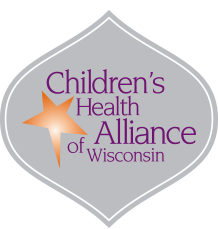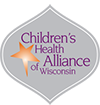While 2020 was filled with many unexpected events and an endless amount of uncertainties, the health care industry and health care heroes remained concrete, determined and ready to go.
It is without a doubt that COVID-19 has shifted the way that things are done. There is talk about what the ‘new normal’ will look like. Conversations shifted to virtual, and the ability to hug a loved one shrunk. But even through all of the negative and disheartening happenings, there are many positives that flew under the radar or went unnoticed.
Millions of individuals came together to mask up and hunker down, prepared to fight COVID-19 and help save others in the process. The term ‘health care heroes’ became a frequent sound and sight to help describe those that put the health and safety of others before themselves. To all of our partners in the health care field: thank you. Thank you for all that you have done, and continue to do, to help keep your communities safe and healthy.
Those in public health and working behind the scenes made a difference, too. New legislation was passed to protect the health of children. Books were distributed during well-child visits to help encourage early literacy. Resources were created to help medical providers. Partnerships were formed to promote the health of communities. These examples, and so much more, are why public health exists.
Please join us in recognizing our colleagues’ achievements, and reading some of our own.
Asthma
Wisconsin Asthma Plan 2021-25 Release
The Wisconsin Asthma Coalition created an updated Asthma Plan to address priorities and pieces necessary for quality asthma care for children and adults. This plan serves as a blueprint for public health and health care advocates.
School and Child Care Walkthroughs go Virtual
COVID-19 turned the classroom into a virtual setting, and the WAC environmental walkthroughs followed suit. The WAC now offers free virtual walkthroughs to help identify asthma triggers and provide low-cost remediation tactics.
Eight WAC Webinars
The WAC held eight webinars in 2020 on a variety of topics related to asthma. The webinars included national speakers and had hundreds of attendees who were able to learn best practices and apply them to their daily work.
Receiving Green & Health Homes Initiative Asthma Reimbursement Award
This project aims to secure a sustainable reimbursement model for comprehensive in-home asthma services.
Participating on MCW’s Advancing a Healthier Wisconsin Grant Team
This project focuses on the connection between clinical, health department and community practices to improve lead screening in Milwaukee, connect parents and medical providers to better understand and address various topics on lead.
Early literacy
Telehealth Visits
Reach Out and Read Wisconsin provided training and support on implementing the program through telemedicine visits.
Virtual Annual Meeting
This year’s annual meeting was shifted to a virtual format with record attendance.
Support
Through generous donations and grants, clinics were given a higher than usual amount of book support.
10 Years and a New Transition
Reach Out and Read Wisconsin celebrated 10 years with Children’s Health Alliance of Wisconsin. Additionally, ROR WI transitioned their organizational and financial relationships to the Reach Out and Read National Center.
Emergency Medical Services for Children
Pediatric Readiness Quality Collaborative (PRQC)
WI EMSC worked with 11 emergency departments to complete over 24 Plan-Do-Study-Act (PDSA) cycles and over 1,000 pediatric chart reviews.
Grant Funding
WI EMSC received $50,000 of grant funding to participate in a national telehealth collaborative targeted at improving emergency care for children with special needs.
Pediatric Emergency Care Coordinators (PECCs)
More than 70 new PECCs joined EMS agencies across the state.
Comfort Kits
More than 150 pediatric comfort kits were created and sent to EMS agencies and emergency departments.
Injury Prevention and Child Death Review
Development of a Virtual Review Guidance Document
This document allowed many child death review teams to meet virtually due to COVID-19. The document provided guidance on the best way to host a virtual review meeting.
Memo to State Partner on the Increased Risk of Child Drowning
This memo was released on behalf of the State Child Death Review Council, and was distributed to partners throughout the state. It urged partners to take extra precautions this year to help prevent drowning.
Self-Care Gift to CDR Team Coordinators and Data Entry Individuals
In lieu of a virtual conference, CDR teams received a gift to acknowledge our appreciation for their work during this difficult time.
Medical Home
Medical Home Trainings Converted to a Virtual Format
The transition to a virtual format allows developmental screenings and mental health trainings to continue, even during a pandemic.
Partnership with the Mosaic Family Health Clinic
This partnership will provide training every two years to ensure that all new residents will be trained on the topic of developmental screening tools. This will ensure that all residents at this site will know current AAP recommendations around developmental screening.
Development of the virtual C.A.R.E Medical Home Series for Families
This series contains four presentations and discussions that are delivered virtually or in-person. The trainings were developed to support families who have children or youth with special health care needs.
Advancing Family-Centered Care Coordination Quality Improvement Grants
This is the final year supporting quality improvement competitive grants for health care teams to implement care coordination through the use of Shared Plans of Care (SPoC), and over the course of five years, clinicians have shared the SPoC tool has improved how they work and communicate with families. The work will continue with Tribal Health Centers across the state.
Food Insecurity and Health Pilot
The Alliance will work closely with various community-based organizations and primary health care clinics to decrease food insecurity and improve the health of children. The partnership will consist of a learning community where they can share, learn and find ways to improve on coordination across community and clinic systems that result in families getting what they need.
Oral Health
Medical Dental Integration
The pilot of the Muslim Community and Health Center partnership came with the funding of equipment from Young Dental. Progressive Community Health Center also began MDI, and MDI will allow clinics to employ a dental hygienist.
Milwaukee Oral Health Coalition
The Coalition successfully convened HMOs in Southeast Wisconsin to streamline various processes to make enrolling as a provider easier along with engaging in a meeting with the Governor’s office, Medicaid and Department of Health Services leadership to discuss access to care solutions. The Coalition also brought professionals together for the first virtual Wisconsin Oral Health conference.
Wisconsin Seal-A-Smile
Developed new guidance for school-based programs to safely provide school-based services during COVID-19.
Advocating Efforts
The oral health initiative successfully advocated to keep Green Bay water fluoridated after repeated attempts to remove fluoridation from their water.
Quality Improvement
QI Portfolio Sponsorship Status
The Alliance achieved this status through the American Board of Pediatrics. This allows the Alliance to approve and monitor their own QI projects with associated MOC part 4 credit for pediatricians.
Movement Upstream QI Project
This QI project was designed to increase our focus on policy-related work. This year, the Alliance signed on to, drafted or influenced content of 20 policies or bills.
Participation in the WI Division of Medicaid Services’ Quality Strategy Team
Arianna Keil, MD., participated on this strategy team. The group developed a comprehensive set of measures to track performance across all DMS programs.


